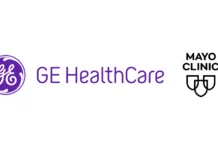Medication compliance is essential to effective treatment and positive patient outcomes, yet many patients struggle to follow their prescribed regimens due to complexity, side effects, or misunderstandings about their medications.┬Ā
Pharmacists are crucial in addressing these challenges because of their extensive knowledge and patient-centred approach. Thus, this article will discuss how knowledgeable pharmacists make a difference.
Pharmacist Knowledge as a Key to Enhanced Patient Outcomes
Medication compliance means taking the correct medication at the right dose and times as prescribed by a healthcare provider. This seemingly straightforward task holds profound importance in patient health management; when patients adhere to their medication plans, they’re more likely to experience positive health outcomes, such as symptom control, disease management, and overall improvement in quality of life.┬Ā
Compliance also significantly impacts healthcare resources. Higher adherence levels contribute to lower hospital readmission rates and reduced complications. As such, it helps manage and decrease overall healthcare costs by preventing avoidable treatments and emergency interventions.
Nevertheless, various factors can hinder a patient’s adherence. Age, for example, plays a crucial role, with older patients often facing challenges like cognitive decline or physical limitations that make medication management difficult. On the other hand, younger patients may feel that their symptoms are mild or infrequent and, therefore, deprioritize their medications.
Cognitive ability is another vital aspect; individuals with memory issues or mental health conditions might struggle to keep up with complex medication schedules. Socioeconomic status also significantly affects compliance, as patients from lower-income backgrounds may have difficulty affording medications or lack consistent access to a pharmacy.┬Ā
Further, language can complicate matters, as patients may not fully understand instructions, leading to accidental non-compliance. Thus, pharmacists use their academic training and extensive knowledge in pharmacology, patient communication, and healthcare processes to address these barriers. They are highly qualified professionals who have undertaken specialized education for such responsibilities.
For example, pharmacists must pass rigorous exams like the Multistate Pharmacy Jurisprudence Examination (MPJE), which assesses their understanding of federal and state-specific pharmacy laws. Hence, an individual can use a pharmacy law exam resource when preparing for this exam.
Strategies Pharmacists Use to Improve Medication Compliance
Pharmacists employ various strategies to help patients adhere to their prescribed treatments. These approaches include the following:
Medication Therapy Management (MTM)
Medication Therapy Management (MTM) is a comprehensive service that pharmacists use to assess and optimize a patient’s medication regimen. MTM aims to ensure that each medication a patient takes is necessary, safe, and effective, which can be especially important for patients managing multiple conditions.┬Ā
The service typically includes a thorough medication review, where the pharmacist evaluates all the drugs a patient is using, checking for potential interactions, duplications, and side effects. By identifying and resolving these issues, pharmacists can prevent complications that might lead patients to stop taking their medications.
MTM also allows pharmacists to educate patients about their medications, explaining why they’re necessary and how they work. This level of understanding can be pivotal in improving adherence, as patients who know the reasons behind their medications are more likely to follow through with their regimens.
Adherence Aids and Reminders
In addition to MTM, pharmacists support medication compliance by recommending and providing adherence aids. These tools help patients remember when to take their medications, particularly those with complex or frequent dosing schedules. Pill organizers, for example, allow patients to sort their medications by day and time, which can be a lifesaver for individuals managing several prescriptions.
Mobile health apps offer additional support, providing reminders, tracking, and even direct communication with the pharmacy. These reminders can significantly improve consistency for patients who might miss doses due to memory issues or busy schedules. Further, some apps can track medication adherence over time, enabling patients and pharmacists to identify patterns and adjust routines as needed.
Personalised Care Plans
Pharmacists also enhance medication compliance through personalized care plans that consider each patient’s unique needs. Rather than a one-size-fits-all approach, these care plans address individual challenges such as language barriers, mobility issues, and financial constraints.┬Ā
For instance, if a patient struggles with the cost of medications , a pharmacist might recommend a generic alternative or connect them with financial assistance programs. Similarly, patients with limited mobility may benefit from mail-order or home-delivery pharmacy options, ensuring they have a consistent supply of medications.
Long-Term Patient Monitoring and Follow-up Care
These are essential elements in maintaining medication compliance, particularly for those managing chronic conditions or complex regimens. Hence, pharmacists are well-positioned to provide consistent follow-up care through scheduled check-ins.┬Ā
These interactions allow pharmacists to identify and address issues as they arise, such as side effects, lifestyle changes, or shifts in medication effectiveness, which can all impact adherence. Regular follow-up also creates an ongoing support system for patients, encouraging them to stay committed to their treatment plans.
Conclusion
Pharmacists have a vital role in improving medication compliance. Thus, through services like Medication Therapy Management and tailored care plans, pharmacists actively contribute to better health outcomes, reducing hospital readmissions and healthcare costs.┬Ā
Their ability to follow up with patients and offer continuous support ensures sustained adherence. Further, adherence aids, such as pill organizers and mobile health apps, empower patients to manage their medication schedules more effectively.


















